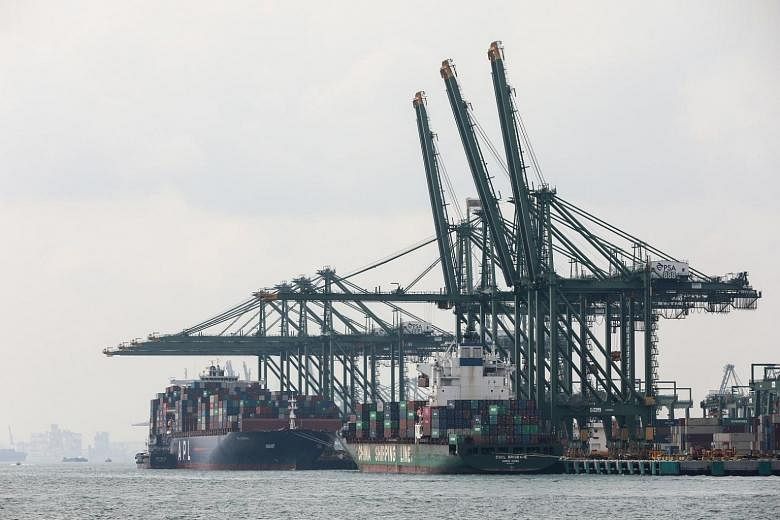SINGAPORE - Growth has slowed in the Asia-Pacific due to trade tensions and uncertainty, but countries in the region should take this opportunity to adopt structural reforms to strengthen their prospects for growth in the long term.
This is a key recommendation in a report by the Asia-Pacific Economic Cooperation (Apec) Policy Support Unit (PSU), the research arm of the regional bloc.
Released on Wednesday (Nov 20), the report noted that the region grew at a slower pace of 3.6 per cent from January to June this year, compared to gross domestic product growth of 4.3 per cent over the same period last year.
Uncertainty on the external front has dampened investments and consumer spending, said the report.
It added that while household spending remains a key driver of growth, and easing of trade frictions may improve the outlook for next year, consumption is slowing along with investment and trade.
Apec economies account for 40 per cent of the world's population and 60 per cent of global GDP.
Apec PSU director, Dr Denis Hew, told the media in a briefing on Wednesday that while the region was not expected to plunge into a recession this year or the next, there could be a "prolonged period" of low to moderate growth.
But this is a moment of opportunity, he said. "More structural reforms can help Apec economies to strengthen their foundations with diverse sources of growth."
The report, titled Slower Growth, Bigger Challenges, outlines policy reforms that can promote economic growth, like financial inclusion by investing in and enabling digital technology.
It suggests paying attention to services trade, which has been more resilient than merchandise trade in the last year. The digital economy can help some economies to access markets more quickly, it said.
Other measures include reducing barriers that prevent women from participating fully in the economy.
"The more opportunities that people have to contribute, whether women or small businesses, the more economies thrive. Improving inclusion is both right and smart," said Apec Secretariat executive director, Dr Rebecca Sta Maria.
The goal of more equitable growth underlies the forum's efforts to measure progress beyond economic output.
As Apec celebrates its 30th anniversary this year, policymakers are calling for alternative means to track development and inform policy, for example by considering environmental impact assessments or access to quality goods and services.
Dr Hew said: "GDP doesn't capture environmental impact and pollution. It tracks prices but not the quality of goods, like better quality and cheaper mobile phones as a result of new technology."
Apec's focus on measuring progress beyond GDP is expected to continue under host economy Malaysia next year.


